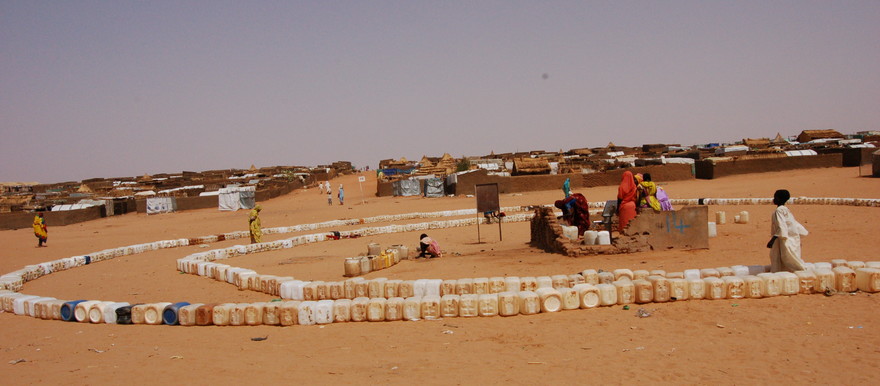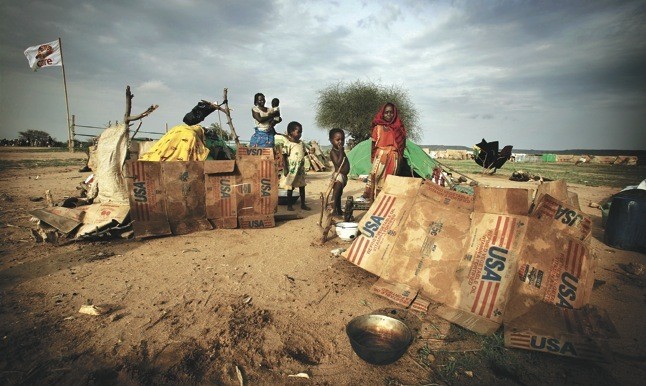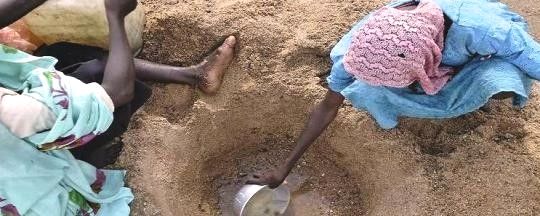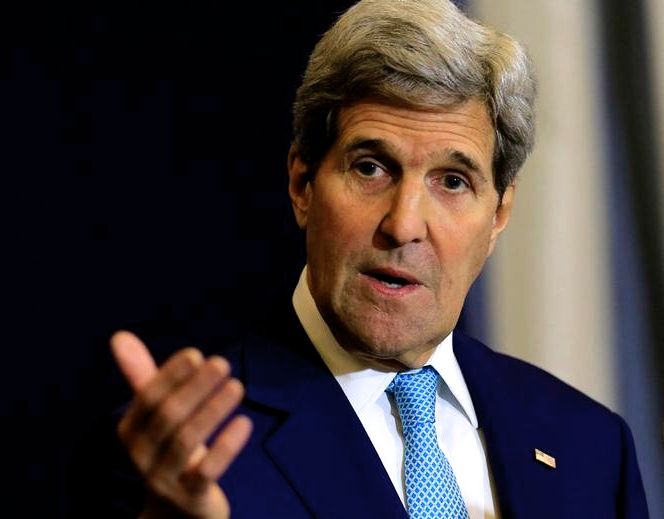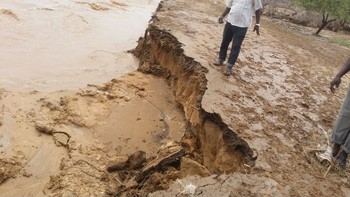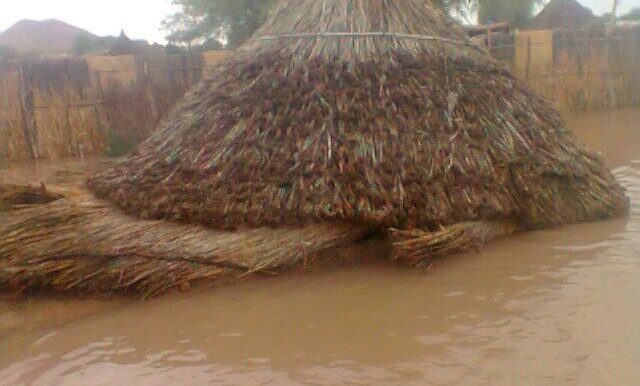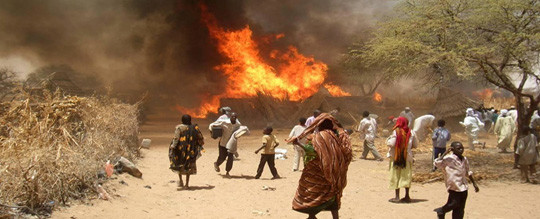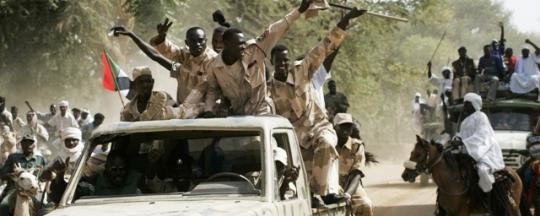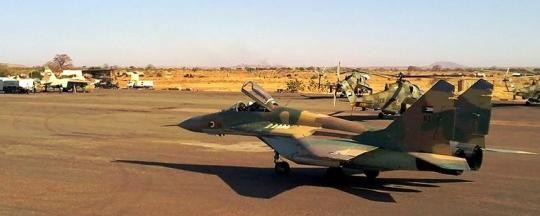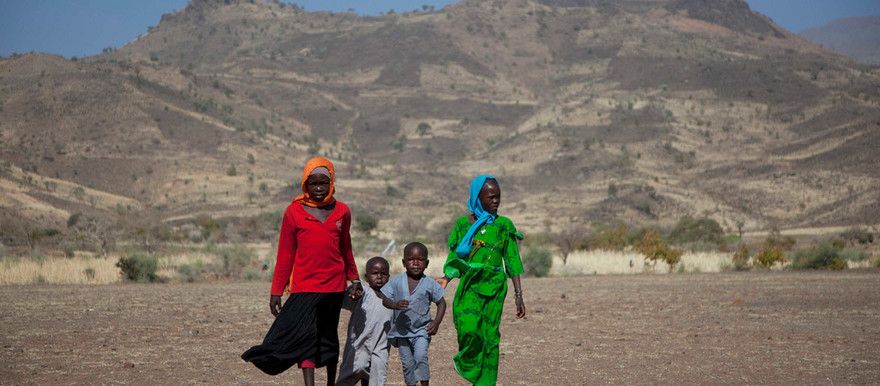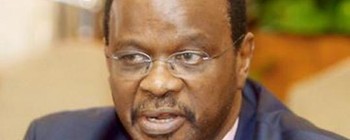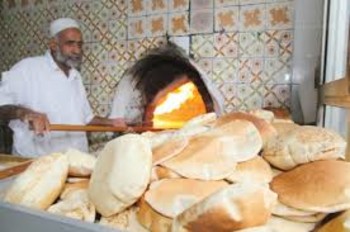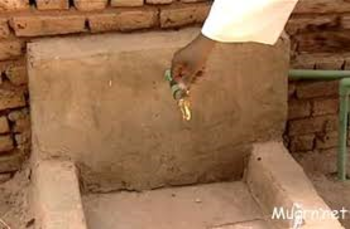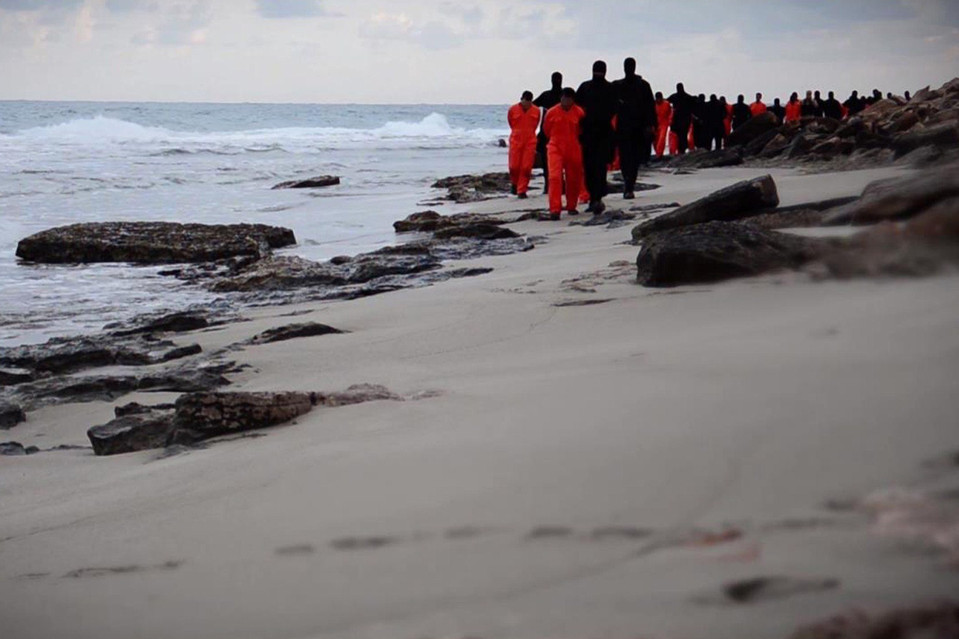This twenty-first installment of Darfur: Radio Dabanga News Digest focuses on events of the past two weeks, including violence and insecurity in North Darfur and the continuing deterioration in humanitarian conditions. Several dispatches give further evidence of the accelerating collapse of the Sudanese economy, kept afloat by rumor, repression, corruption, and outright mendacity. In all this the Khartoum regime is assisted by an absurdly uncritical International Monetary Fund, which should long ago have ceased giving credibility to the “data” promulgated by the regime’s Central Bureau of Statistics
[Because the News Digest now appears on a biweekly basis, dispatches will often be reduced further in editing—most appearing with only the title, the URL (always embedded in the title), and perhaps a key sentence—and commentary will typically be briefer.]
TOPIC HEADINGS
[1] Humanitarian indicators and concerns, focusing particularly on the consequences of recent rains (this is the very height of the rainy season in Darfur)
[2] Continuing violence against civilians: taking all forms in all areas of Darfur
[3] Political failure of the “Darfur Regional Authority” created by the worthless Doha (Qatar) Document for Peace in Darfur
[4] Broader political issues, economic developments, including recent additional reports of shortages: water and food shortages have reached a crisis point
The lines for water grow longer and longer—in Darfur and throughout Sudan
[For previous Radio Dabanga Digests, see:
Darfur: Radio Dabanga Digest, Number 1 | http://wp.me/p45rOG-1CD
Darfur: Radio Dabanga Digest, Number 2 | http://wp.me/p45rOG-1De
Darfur: Radio Dabanga Digest, Number 3 | http://wp.me/p45rOG-1Dt
Darfur: Radio Dabanga Digest, Number 4 | http://wp.me/p45rOG-1Ei
Darfur: Radio Dabanga Digest, Number 5 | http://wp.me/p45rOG-1EL
Darfur: Radio Dabanga Digest, Number 6 | http://wp.me/p45rOG-1Fp
Darfur: Radio Dabanga Digest, Number 7 | http://wp.me/p45rOG-1FL
Darfur: Radio Dabanga Digest, Number 8 | http://wp.me/s45rOG-6452
Darfur: Radio Dabanga Digest, Number 9 | http://wp.me/p45rOG-1Gi
Darfur: Radio Dabanga Digest, Number 10 | http://wp.me/p45rOG-1Gt
Darfur: Radio Dabanga Digest, Number 11 | http://wp.me/p45rOG-1Hq
Darfur: Radio Dabanga Digest, Number 12 | http://wp.me/p45rOG-1HY
Darfur: Radio Dabanga Digest, Number 13 | http://wp.me/p45rOG-1Ia
Darfur: Radio Dabanga Digest, Number 14 | http://wp.me/p45rOG-1II
Darfur: Radio Dabanga Digest, Number 15 | http://wp.me/p45rOG-1Ji
Darfur: Radio Dabanga Digest, Number 16 | http://wp.me/p45rOG-1JU
Darfur: Radio Dabanga Digest, Number 17 | http://wp.me/p45rOG-1Kp
Darfur: Radio Dabanga Digest, Number 18 | http://wp.me/p45rOG-1L7
Darfur: Radio Dabanga Digest, Number 19 | http://wp.me/p45rOG-1Lm
Darfur: Radio Dabanga Digest, Number 20 | http://wp.me/p45rOG-1LM
Darfur: Radio Dabanga Digest, Number 21 | http://wp.me/p45rOG-1Mv — and below
Sudan Tribune has again been the source of several key reports on Darfur and the growing political crisis.
All emphases in all quoted material (in bold) have been added; all editorial comments are in italics, in blue, with my initials following; a useful and quite recent administrative map of Darfur appears here.
A brief glossing of terms as typically used in Radio Dabanga dispatches:
herders—typically refers to nomadic Arab pastoralists, herding camels and/or cattle;
settlers—typically refers to Arab pastoralists or farmers, from Sudan and further west, who have settled on lands that belong to African tribal populations;
militia / militiamen—typically refers to armed militia forces, sometimes part of the paramilitary infrastructure Khartoum has created, sometimes simply thugs with guns who attack African (and Arab) civilians for self-enrichment; many Darfuris still refer to these varying groups as “Janjaweed”;
camels—inevitably, when described as a means of transport, a signal that those riding them are Arab militiamen;
Rapid Support Forces (RSF)—the RSF is organized and well-supported and supplied by the regime—openly embraced by the NIF.NCP regime. This was not true of the “Janjaweed,” which Khartoum denied was part of its military operations in Darfur. The RSF might be seen as a successor to the various forces known collectively as the Janjaweed; the RSF is now distinctly the dominant militia forces working in concert with Khartoum’s regular military, the Sudan Armed Forces (SAF);
Abu Tira—Central Reserve Police; while still active, this paramilitary force has now been subordinated to the Rapid Response Forces;
Border Intelligence Guards—another competing element in the militia structure that Khartoum has allowed to develop in Darfur;
Popular Defense Forces—a substantial paramilitary force of longstanding that has been deployed throughout Sudan (they were responsible for some of the worst atrocities in the North/South civil war, particularly under the leadership of current Foreign Minister Ali Karti);
East Darfur—represents a contrived re-configuration of Darfur’s geography for political purposes by Khartoum; the designation has no basis in history; “East Darfur” refers to what was formerly almost entirely part of South Darfur;
Central Darfur—like South Darfur, this designation represents a contrived re-configuration of Darfur’s geography for political purposes by Khartoum; the designation has no basis in history; “Central Darfur” refers to what was formerly almost entirely part of West Darfur;
Further reports on ArabSat’s removal of Radio Dabanga from its news line-up:
“Sudan targets Radio Dabanga through ArabSat removal”: journalists | July 21, 2015 | Khartoum
Sudanese opposition condemns Arabsat’s removal of Radio Dabanga | July 20, 2015 | Khartoum ]
Eric Reeves, 2 August 2015
What may prove to be the most notable story of the past two weeks is the seizure of the gold mines by former Janjaweed leader Musa Hilal in the Jebel ‘Amer region of North Darfur. This puts Hilal’s “Revolutionary Awakening Council” (RAC) on a collision course with Khartoum’s National Islamic Front/National Congress Party (NIF/NCP) regime, which is focusing ever more insistently on gold as a source of foreign exchange currency. Jebel ‘Amer has already been the site of very considerable fighting between Arab groups in the region; Hilal’s actions portend a good deal more violence, with civilians in the region the primary victims as insecurity escalates to the point that humanitarian access is suspended.
• “Revolutionary Council takes control of North Darfur gold mine” | July 23, 2015 | El Sereif Beni Hussein
The Revolutionary Awakening Council (RAC), headed by former Janjaweed leader Musa Hilal, claim that its combatants have taken control of the Jebel ‘Amer gold mining area in North Darfur. The RAC’s military commanders reportedly stated that access to the gold mine is not allowed to “any company or government institution,” except with their permission. Multiple sources in El Sereif Beni Hussein locality explained to Radio Dabanga that the RAC took this step after the leader of the paramilitary Rapid Support Forces (RSF), Mohamed Hamdan, nicknamed Hemeti, paid a visit to the gold mine some days ago.
[Tension between Hemeti and the RSF and Hilal’s RAC is extremely high, with much bad blood between them; Hemeti has the support of the powerful National Intelligence and Security Services (NISS) and Military Intelligence, Khartoum’s dominant intelligence power in Darfur—ER]
The leader of the RSF militia, commanded by the National intelligence and Security Service (NISS), visited Jebel ‘Amer together with representatives of a NISS-owned gold mining company. “Hemeti met with leading sheikhs of the area, and told them that the Jebel ‘Amer gold mine will be protected by the RSF, as a number of gold mining companies will start operating in the area,” one of the sources said. “The militia leader also told the sheikhs that the entire mining area will be fenced off with barbed wire.” [A new civil war would seem to be in the making—ER]
Hemeti reportedly also told the sheikhs that an agreement has been signed that provides for the equal distribution of the mining profits between the Sudanese government, North Darfur state, and himself. In response, Musa Hilal and his commanders took control of the area, the sources said. The independent Sudanese electronic newspaper El Tareeg stated today that the governor of North Darfur denied hearing about the occupation of Jebel ‘Amer by RAC fighters…
Hilal established the RAC, together with North Darfuri tribal leaders, in the beginning of 2014. In December last year, the RAC announced the formation of a new management board for the Jebel ‘Amer gold mining area. The RAC spokesman told Radio Dabanga that the management board, and not the Sudanese regular forces, would be responsible for the protection of the gold mine. The spokesman also said that Musa Hilal called on all Darfuris to “stand up against the National Congress Party and its corrupt regime.”
• North Darfur tribal leaders agree to restore social fabric | July 30, 2015 | Kutum, North Darfur
[Such efforts are certain to be undermined by fighting between Khartoum’s allies and Hilal’s RAC; moreover, there are no signs that Khartoum has altered its policies of extreme violence as a means of subduing North Darfur—ER]
• Largest gold mining deal in Sudan’s history | July 30, 2015 | Khartoum
Khartoum has granted a Russian gold mining group concession to explore for gold in northern and eastern Sudan. On Wednesday, the Minister of Minerals, Ahmed El Karori, and company director Vladimir Zhukov signed the agreement at the presidential palace in Khartoum, in the presence of President Omar Al Bashir. El Karori said in a press conference held after the signing ceremony that the contract covers nine blocks, equivalent to some 8,000 ton, in the Red Sea and the River Nile. The total of gold reserves in the two regions has been estimated at 46,000 ton, with a value of more than one trillion dollar. The production stage will be reached within the coming six months. It is expected that the first year will produce up to 33 tons, to reach 53 tons in two years. “These quantities will contribute to an economic boom and change the status of the country,” the Minister predicted.
[While all of these statistics are highly suspect, there can be no doubt about the motives behind the deal, and the high-profile announcement: without a great deal of additional income from exports, the regime cannot survive the current economic collapse. The message being sent here is meant to dampen raging inflation and to create uncertainty in the black market for hard currency. This is clear evidence that the regime believes that with sufficient time, and sufficiently severe repressive measures, it can survive. Recent moves by the Obama administration encourage Khartoum’s génocidaires in this belief—ER]
[1] Humanitarian indicators and concerns, focusing particularly on the consequences of recent rains (this is the very height of the rainy season in Darfur):
• Sudan summons EU official over “false information” on humanitarian situation | Sudan Tribune, July 28, 2015 | Khartoum
Sudan’s foreign ministry on Tuesday has summoned the European Union (EU) acting ambassador in Khartoum to protest against false information published by the EU commission regarding the humanitarian situation in Darfur, South Kordofan and the Blue Nile. In a statement on 18 July, the EU Commissioner for Humanitarian Aid and Crisis Management, Christos Stylianides, said the humanitarian situation in Sudan is getting worse each day, noting that 5.4 million people in Darfur and in Southern Kordofan and Blue Nile States are in need of lifesaving aid. According to a press release issued by the foreign ministry, the director of the peace and humanitarian affairs at the ministry, Ali al-Sadiq, summoned Tuesday the EU’s acting envoy to Khartoum to protest against Stylianides statement. “The (Stylianides) statement included false information about the increasing number of refugees and IDPs and about the general humanitarian situation in Darfur, South Kordofan and the Blue Nile” the press release reads. It added that al-Sadiq conveyed to the EU official Sudan’s categorical rejection for the misleading and erroneous information contained in the statement, stressing the humanitarian and security situation in Darfur, South Kordofan and the Blue Nile have been calm for several months.
[There is no greater obstacle to humanitarian relief for the desperate populations of Darfur, Blue Nile, and South Kordofan than Khartoum’s insistent mendacity, which in turn defines policies, including those bearing on the activities and access of UN agencies and nongovernmental relief organizations. What follows in the dispatches of this section stands as an overwhelming rebuttal of Khartoum’s viciously dishonest claims—ER]
So many have so little…
• Food rations for Darfuri refugees in Chad “may be cut next year” | August 2, 2015 | Eastern Chad
Darfuris living in the 14 refugee camps in eastern Chad will probably not receive food rations in 2016. Representatives of the UN High Commissioner for Refugees (UNHCR) told leaders of the refugee camps last week that the distribution of the monthly food rations may end in January, because of a lack of funds. A Radio Dabanga correspondent in Djabal refugee camp reported that the camp leaders were told to prepare the people early for the expected halt in distribution. He said that the refugees are already living in a difficult situation, as the rations were reduced last year.
[N.B.—This is unspeakable callousness on the part of the international community; these people are trapped in eastern Chad because of intolerable insecurity in Darfur, which the international community also refuses to commit to halting. These human beings—women, children, men, the elderly, the infirm—have been shamefully abandoned—ER]
The potential for famine in eastern Chad is becoming frighteningly real
• “Conditions for North Darfur displaced dire”: camp coordinator | July 27, 2015 | North Darfur
The situation of the displaced living in North Darfur has become extremely dire, according to Omda Ahmed Ateem, coordinator of the North Darfur camps. “All registered displaced receive an amount of SDG33 ($5) per month from the North Darfur Chamber, in agreement with the World Food Programme (WFP),” he told Radio Dabanga. Ateem stressed that this amount is “by far not enough to cover the needs of the displaced in terms of food and water.” “Almost all basic services collapsed after the aid organisations were evicted in 2009,” Ateem explained, referring to the expulsion of [thirteen] international humanitarian relief agencies by President Al Bashir in March that year, a day after the International Criminal Court had issued an arrest warrant against him for war crimes and crimes against humanity.
• “No drinking water, no school in Otash camp, South Darfur” | July 29, 2015 | Otash Camp
The residents of Otash camp for the displaced in Nyala locality have been suffering from a severe shortage of water for the past month. Many students left school because their parents cannot afford to pay the monthly fees. An Otash camp elder told Radio Dabanga that three water pumps broke down five weeks ago. “Seven other engines have needed need maintenance for ages and only work at intervals,” he added. He said that WEST, the governmental organisation in charge of drinking water provision to the camps, does not provide the fuel needed for the pumps. The camp elder also reported that many students did not enroll in schools this year, as they cannot afford to pay the monthly fees…
[Water shortages have are now endemic throughout Sudan, but nowhere more pervasively than in Darfur and the camps for IDPs. Schooling has ended in many places in Darfur, with dire consequences for the future of the children being denied—ER]
Soon livestock will start to die for lack of water—and human beings will be fortunate to have enough; many will die for lack of clean water
• “Malaria spreads in [formerly West] Darfur camps” | July 28, 2015 | Zalingei
The increasing number of mosquitoes in camps for displaced people in Central Darfur is causing malaria infections to rise. The coordinator of the camps for the displaced in the state spoke about the deterioration of health services in an interview with Radio Dabanga. Mosquitoes can easily breed and spread in the camps’ environment. “This spread has led to an increase in malaria among the displaced people. The Ministry of Health has taken over the provision of services after the expulsion of organisations, but is not performing its duty well,” the coordinator said.
[This is the perfect example of why international acquiescence in Khartoum’s continuing policy of expelling relief organizations is so consequential: leaving vital water and sanitation issues in the hands of a regime that is bent on removing people from the camps is a formula for disaster—something Secretary of State (formerly Senator) John Kerry seemed happy to ignore in his fatuous—more likely disingenuous—assertion in April 2009 that the effects of loss of humanitarian capacity in Darfur by virtue of the March 2009 expulsions would be remedied in a matter of “weeks.” Capacity has never been restored; expulsions continue; and Khartoum remains relentless in its determination to empty the IDP camps and remove the rationale for an international humanitarian presence—ER]
U.S. Secretary of State (and former Senator) John Kerry: in April 2009, following Khartoum’s March 9 expulsion of thirteen of the most important international relief organizations working in Darfur, Kerry declared that full capacity would be reached again within a matter of weeks…he had a “promise” from the Khartoum regime. Kerry certainly must have known the promise was hollow, and in fact relief capacity has never reaching the levels prior to the expulsions.
• “Rain destroys 30 homes, relief items seized in South Darfur” | July 29, 2015 | Gireida, South Darfur
More than 30 shelters collapsed in the Dar El Salam and Forika camps for the displaced in Gireida locality owing to heavy rainfall on Tuesday. Security agents allegedly confiscated a number of relief items donated to the displaced. A resident of Forika camp reported to Radio Dabanga that the downpours destroyed 20 homes in Dar El Salam camp, and more than a dozen of shelters in the Forika camp. “The affected are now living in the open, in a tragic situation,” she said, and appealed to humanitarian organisations to provide covers and other relief items as soon as possible. [Humanitarian capacity is already stretched beyond the breaking point in Darfur; many of those living in the open are doomed to continue to do so—or die from exposure, dehydration, malnutrition, or lack of medical assistance—ER]
According to the source, South Darfur agents of the National Intelligence and Security Service (NISS) took 100 tarpaulins, 200 blankets, and 200 jerry cans from the displaced. “After the International Rescue Committee [sic—this must refer to the International Committee of the Red Cross; the International Rescue Committee was expelled from Darfur by Khartoum in March 2009] conducted an inventory of the needs among the displaced, the organisation distributed a number of relief items to the camps in the locality. “A group of security personnel arrived during the distribution, and told the camp sheikhs that they are entitled to some of the items,” she reported.
[This “asset stripping” by Khartoum’s security forces is obscenely cruel under the current circumstances—ER]
• Floods follow hunger in South Darfur’s largest camp | July 30, 2015 | Kalma Camp, South Darfur
The more than 163,000 displaced people in Kalma camp, near the South Darfur capital of Nyala, are living in extremely dire conditions during this rainy season, owing to a shortage of food and poor sanitary provisions. “Many children in the camp show signs of malnutrition as they depended on the food distributed by the World Food Programme (WFP). However, the organisation stopped its food rations two months ago,” Saleh Eisa, general coordinator of Kalma camp reported to Radio Dabanga on Wednesday.
[That this can be true is simply shocking: Kalma is close to Nyala, the largest city in Darfur. Food transport from Nyala cannot be the issue. It is a fundamental failure of the UN World Food Program—ER]
Kalma camp near Nyala, South Darfur, after a recent flood
“This exacerbates the already dire situation, as the people are also suffering from a proliferation of mosquitoes and flies during the rainy season. Most of the mosquito nets distributed two years ago have worn out.” Eisa explained that “the poor sanitary conditions worsened after the latrines were flooded or entirely collapsed because of the rains.”
[This is a formula for disastrous levels of morbidity—ER]
The camp coordinator … requested the help from “all the organisations, including UNAMID, to drain the pools of water in the camp, and redirect the waters of Baba Valley streaming north, east, and south of the camp.” On 16 July, heavy rains destroyed 761 homes in the camp. The flash floods filled the pits and pools at the camp to the brim. Two days later, two children drowned in one of the pits.
[Kalma camp has long been a living hell for most of its residents. The current rains, flooding, and subsequent stagnant pools of water have created a major health crisis—ER]
• Central Darfur camp a mud pool after rains | July 30, 2015 | Zalingei
• Downpour destroys school in Sirba, West Darfur | July 22, 2015 | Sirba Locality, West Darfur
A flooded camp in West Darfur
• Heavy rains damage West Darfur camp, village | July 28, 2015 | El Geneina / Sirba
• Two children drown in Kalma camp, South Darfur | July 19, 2015 | Kalma Camp
• Death, houses collapse in Sudan floods | July 26, 2015 | Kabkabiya / El Geneina / Bara
• Drought forces herders to move to Nyala, South Darfur | July 28, 2015 | Nyala
Citizens in South Darfur fear that the absence of rains will have bad consequences for farmers and herders, as the latter are forced to move their cattle to areas surrounding Nyala. While other parts of Darfur are afflicted by heavy rainfall, rains have been delayed in and around Nyala locality. The local drought has forced a number of herdsmen to move their livestock to the south and east of Nyala, a resident in El Malam locality in East Jebel Marra told Radio Dabanga. “Most of the areas north of Nyala city have not seen rainfall so far.”
[Herders moving their livestock nearer to the Nyala area will almost certainly result in increased violence—ER]
• Student suicide in Zamzam, North Darfur | July 23, 2015 | Zamzam Camp, North Darfur
A 17-year-old student of Zamzam camp for the displaced in North Darfur hanged himself on Monday. An activist told Radio Dabanga from Zamzam that Mohamed Abdallah Taher was found dead, hanging at a tree nearby the camp. “A fierce dispute with his mother probably led to this sad deed,” he said. He pointed out that the prolonged war in the region has had a negative effect on children’s behaviour.
[In August 2011 the distinguished British medical journal The Lancet published findings of a shocking magnitude:
Investigators of studies with medium to large sample sizes have concluded that forcibly displaced children in low-income and middle-income settings have high rates of psychiatric disorders. Thus 75% of 331 displaced children in camps for internally displaced people in southern Darfur met diagnostic criteria for post-traumatic stress disorder, and 38% had depression. (The precise date of data acquisition from South Darfur is not clear in the synopsis that appears on-line at present—ER)]
• Two girls die of scorpion stings in North Darfur, people demand serum | July 20, 2015 | El Koma
• Sudan security to finance maintenance of West Darfur hospital | July 27, 2015 | El Geneina
The National Intelligence and Security Service (NISS) will financially support the maintenance of El Geneina Hospital, the field commander of the paramilitary Rapid Support Forces (RSF) said on Sunday. During an official visit to the hospital in the West Darfur capital, RSF commander Mohamed Hamdan, nicknamed Hemeti, announced that the NISS will fund the maintenance of various hospital sections and wards, as well as the construction of a new operating theatre “equipped with the latest medical devices.”
[This perverse funding charade is a crude and obvious effort by Khartoum to put a “happy face” on its intelligence services and their support for the Rapid Support Forces, a militia force of extraordinary violence and destructiveness—ER]
• South Darfur employees to pay for Nyala Hospital upkeep | July 26, 2015 | Nyala, South Darfur
South Darfur government employees are complaining about a deduction from their monthly salaries for the maintenance and expansion of the Nyala Teaching Hospital. Governor Adam El Faki on Thursday announced that he has instructed the state’s Ministry of Finance to deduct SDG10 ($2) from the wages of 27,000 South Darfur state employees, in order to maintain and improve the health services at the hospital and replace and acquire new medical equipment.
[In contrast to those enjoying the regime’s “benign” efforts in Central Darfur, those in South Darfur face compulsory payments for what the regime will not finance—ER]
• Model village, schools, health centres opened in [formerly South] Darfur | July 27, 2015 | Ed Daein
A number of service projects were officially opened in Ed Daein locality in East Darfur on Sunday. The chairman of the Darfur Regional Authority, Dr. Tijani Sese, the head of the governmental Darfur Peace Office, Dr Amin Hassan Omar, and the governor of East Darfur, Anas Omar, were present at the opening ceremony. The completed projects include a model village, established with financial support from Qatar, and a number of schools and health centres in the locality.
[Tijani Sese has sold out his people and become nothing more than a stooge for the regime. In cooperating in the creation of a “model village”—Sudan’s version of Stalin’s “Potemkin Villages”—Sese has worked to provide a location to which outsiders may be taken to get a look at Darfur as the regime would have the world see it. His betrayal of his people is despicable, and he commands exceedingly little support—only what he can buy—ER]
• Attack on South Darfur village leaves one dead, two injured | July 19, 2015 | Gireida Locality
“A group of Janjaweed riding on camels and horses raided the village of Jertobik on Saturday evening. They fired around them, which led to the killing of Hassan Abbas Ibrahim,” a villager reported to Radio Dabanga. “Mousa Mohamed and Ali Yagoub were injured, and had to be taken to the clinic in Jaukhana for treatment,” she said. The attackers then pillaged the entire village, and torched half of its houses. The source said that the population of the village, located some 10 kilometres east of Gireida town, fled to Jaukhana and Gireida. “There are still about 15 people missing,” she added.
[This is part of the reality that Tijani Sese is helping to conceal with his absurd “model village” in the midst of a region that suffers from unrelenting violence, displacement, and village destruction—ER]
[2] Continuing violence against civilians: taking all forms in all areas of Darfur
• Armed herders damage hundreds of East Jebel Marra farms | July 24, 2015 | East Jebel Marra
Armed herders have damaged hundreds of farmlands in East Jebel Marra in the past week, affected farmers reported to Radio Dabanga. Farmers in the areas of Dalma, Dawa, Numera, Dali, Masalit and Kotto said that herders, “armed by the government,” entered their livestock by force on their farms. Their grazing resulted in the destruction of the farmlands… For Sudanese farmers, the harvest starts in October or November, after Sudan’s rainy season during the summer months. In November last year, many farmers in Darfur reported and complained about herders who let their livestock graze too early on the lands.
[This kind of destruction of agricultural production has been occurring for many years; UNAMID has proved completely powerless to prevent these devastating intrusions—ER]
• Militiamen gather, terrify Central Darfur displaced | July 24, 2015 | Azum Locality
Crowds of militiamen have gathered north of Hamidiya camp in Central Darfur since four days, terrifying residents that they will come under their attack soon. The camp coordinator revealed to Radio Dabanga that the militiamen often fire shots into the air, leading to panic inside the camp near Wadi Azum and Dar. He explained that the reason for their gathering possibly leads back to a killing during the theft of a vehicle by other militiamen in Zalingei three weeks ago. The vehicle belonged to the Popular Defence Forces. They chased the culprits, shot dead one of them, and managed to restore their stolen vehicle. As a response, the militiamen sent a delegation to the Central Darfur government, demanding the payment of blood money for their lost comrade. However, the delegation was arrested. This has sparked their comrades to gather north of Hamidiya, the coordinator said.
[It does not matter that those in Hamidiya camp are not a party to this conflict: the extraction of “blood money” (diyya) will come from those most vulnerable. This pattern has been repeated countless times in one form or another in recent years—ER]
Militiamen come in various forms and often compete with one another and even Khartoum’s regular military; the most powerful militiamen by far make up the Rapid Support Forces
• Shooting between soldiers, militiamen in Central Darfur | July 31, 2015 | Um Dukhun
[Conflict between Khartoum’s regular military forces and the various Arab militias the regime has loosed upon Darfur are growing more common. Khartoum is obviously not in control of all the militia forces its has armed and commandeered; many feel no loyalty whatsoever to the regime, and simply want to use their weapons for brutally rapacious self-enrichment—ER]
• Sudan’s air force, militia attack villages in Kutum, North Darfur | July 26, 2015 | Kutum
Eight villagers were reportedly killed, two others injured, and one was abducted in militia attacks in Kutum locality on Wednesday. According to a statement by the Wadi Hour Students’ Association, paramilitaries of the Rapid Support Forces (RSF) attacked the villages of Anka, Amarei, Goz Kajo, Umbaro, and El Malha at about 5am. They used heavy weapons, and were backed by the Sudanese Air Force.
A separate group of militiamen collected the livestock and belongings of the villagers, who fled the area, the statement reads. The villagers fatally hit by bullets are Jamal Abakar Hasaballah, Waleed Eisa Ahmed, Mohamed Adam Hasabo, Salah Ahmed Karkour, Ali Kenedy, Suleiman Adoma Teiman, Hamed Sandal, and Mubarak Ahmed Azrag. Ali Mukhtar Fadul and Ali Shomo were injured. The attackers took Mohamed Suleiman Adam with them.
One of several advanced military aircraft that Khartoum uses against civilians in Darfur, South Kordofan, and Blue Nile
[NB: This sort of coordinated attack is precisely what defined the early years of the genocide in Darfur—ER]
In January, villages in Kutum and the neighbouring Karnoi and Um Baru localities were attacked by large groups of RSF troops. Mohamed Ahmed Minawi Digeish, independent MP for Karnoi and Um Baru localities, told Radio Dabanga on 8 February that 63 villages had been attacked. The Sudanese government formed the RSF mid-2013, under the command of the security apparatus, to “eliminate the insurgency for once and for all,” the Defence Minister at the time said. At the end of December, Khartoum began its second “dry season campaign against the rebels” in Darfur. Apart from dozens of villages in North Darfur, many villages in the Jebel Marra region were also attacked and plundered.
[The failure of Khartoum to “eliminate the insurgency” from any of the three areas—Darfur, Blue Nile, and South Kordofan—bespeaks the resiliency of the resistance and reflects the consequences of an over-reliance on militia forces, whether the Janjaweed, the PDF, or the Rapid Response Forces. But certainly the destruction of large numbers of civilian villages is well within the capabilities of Khartoum’s military. This further suggests the absurdity of proclaiming the creation of a “model village” of the sort touted by Tijani Sese (see above)—ER]
• Young woman raped by paramilitaries in Darfur’s East Jebel Marra | July 29, 2015 | East Jebel Marra
Two men, allegedly members of the Rapid Support Forces government militia, raped a young woman (16) in East Jebel Marra today. “The girl was tending her family’s farm some 10 kilometres south of Fanga when the two paramilitaries in a Land Cruiser spotted her,” a relative of the victim told Radio Dabanga. “They seized her and raped her alternately,” he said. “A farmer in the neighbourhood who witnessed the assault hurried to Karo village where we live and informed us. We immediately went to the farm where we found her bleeding heavily.” He added that the rapists, “based at the military garrison of Fanga,” have not been apprehended.
[There is a terrible familiarity to every detail of this report, from the medical consequences of gang rape, to the age of the girl attacked, to impunity enjoyed by her attackers—ER]
• Multiple rapes in Darfur’s Jebel Marra | July 28, 2015 | East Jebel Marra
Armed men raped three women including one minor on Monday near Dolma, in East Jebel Marra. The perpetrators reportedly belong to a group of new militant settlers in the area. A relative of one of the victims informed Radio Dabanga that four militant settlers on camels discovered four women tilling their farm close to the village of Dolma. They threatened three of them, aged 17, 27, and 31, and raped them.
On Sunday, three militiamen raped a young woman of 17 near Tabit, Tawila locality, in broad daylight. A witness reported that troops from the military garrison in Tabit pursued and arrested one of the alleged perpetrators, after receiving a report about the incident. The perpetrator is being detained in Tabit. As reported by Radio Dabanga last week, on 19 July, militiamen who recently settled in the abandoned Dawaa, southeast of Tabit, raped three women displaced from the village who were attempting to retrieve some of their belongings from their homes.
[The epidemic of rape in Darfur continues unabated. I know of no prosecution and conviction of a single army or militia officer charged with rape in the past twelve years; impunity reigns—ER]
Women remain terribly vulnerable to sexual assault throughout Darfur; the UN/African Union Mission in Darfur (UNAMID) has proved powerless to protect them
• Schoolgirls raped in Khartoum | July 24, 2015 | Khartoum
• New settlers gang rape five women in North Darfur | July 20, 2015 | Tawila Locality, North Darfur
Three women were raped on Sunday near Tabit.
In a separate incident, two young women were raped on Monday near Karbos village in Tawila locality.
The first incident happened in Dawaa village, southeast of Tabit, locally considered to be part of East Jebel Marra. A relative of one of the victims explained to Radio Dabanga that the inhabitants of the village fled attacks by a government militia early this year and sought refuge in Tabit. “The three women decided to return to Dawaa to try to retrieve some of their belongings, although they had heard that new settlers have now occupied the village,” she said. “When they arrived at about noon, militant settlers seized them and raped them alternately until Monday afternoon.”
The other two women, one of them a minor, were raped on their farmlands near Karbos village on Monday afternoon. A farmer who witnessed the assault from a distance reported that a group of new settlers who have occupied the village of Tarny, seized the two women and gang raped them at gunpoint for two hours.
[Rape is often meant to send a brutal signal: “This is no longer your land but ours; come near it at your peril!”—ER]
• Bombing victim dies in Um Dukhun, Central Darfur | July 28, 2015 | Um Dukhun
[There continues to be no meaningful international effort to halt Khartoum’s bombing of civilian targets in Darfur—or in South Kordofan or Blue Nile—ER]
• Settlers shoot farmer in West Darfur | July 29, 2015 | Sirba
• Attack on South Darfur village leaves one dead, two injured | July 19, 2015 | Gireida Locality
• South Darfur protest against attacks, “toll gates” on Nyala-El Fasher road | July 23, 2015 | Nyala
• Seven vehicles seized at militia “toll gate” in South Darfur | July 24, 2015 | Nierteti
• Cattle thieves kill two in Mellit, North Darfur | July 28, 2015 | Mellit / El Fasher, North Darfur
• Two men shot dead at South Darfur market | July 24, 2015 | South Darfur
• South Darfur market closed after murders | July 28, 2015 | Tur, South Darfur
• Sudanese UNAMID employee abducted in Central Darfur | July 22, 2015 | Nierteti, formerly West Darfur
• Villagers wounded in grenade blast, [formerly West] Darfur | July 24, 2015 | Um Dukhun
• South Darfur farmer molested, refugee shot in eastern Chad | August 2, 2015 | Nyala / Gaga Camp
• Farmer tortured to death, two held incommunicado in West Darfur | July 30, 2015 | New York
The Sudanese authorities should urgently investigate the torture and custodial death of one man and reported torture of two others in West Darfur, the African Centre for Justice and Peace Studies said in a press statement on Wednesday. The three men were detained by members of the Sudanese Armed Forces (SAF) inside the home of Abakar Adam Ishag (32) in Karo Karo village, east of Jebel Moon, at around midday on 17 July… SAF officers reportedly arrived at Ishag’s home in three Land Cruisers and instructed the three men to get into the vehicles without providing arrest warrants. According to reliable sources, the detained men are farmers belonging to the Misseriya Jebel ethnic group [one of the ethnic groups targeted by Khartoum—ER], who also work at the market of Sileia, in Jebel Moon locality during the dry season.
• Sudanese army torture to death man accused of intelligence with Darfur rebels | Sudan Tribune, 30 July 2015 | Khartoum
A human rights group has claimed that the Sudanese army in West Darfur state tortured to death a man accused of providing information to the rebel Justice and Equality Movement (JEM). The African Centre for Justice and Peace Studies said in a statement issued on Wednesday that the victim, Abakar Adam Ishag, and two other men detained with him were severely tortured at the Jebel Mun Military base in the Silea area of West Darfur. “Wounds on his corpse indicated that he had also been stabbed or beaten with a sharp object,” the rights centre said, pointing that he died while he was transported to the Teaching Hospital in El Geneina town.
• Farmer injured in West Darfur robbery | July 23, 2015 | Murnei
• Two women crushed by Rapid Support Forces vehicle in Nyala, South Darfur | July 22, 2015 | Nyala
• Motorcyclist killed, passengers robbed in Darfur | July 21, 2015 | Sirba, West Darfur; Kabkabiya, North Darfur
• Farmer killed near camp in Gireida, South Darfur | July 21, 2015 | Gireida
[3] Political failure of the “Darfur Regional Authority” created by the worthless Doha (Qatar) Document for Peace in Darfur (DDPD)
• Sese asks Darfur elders to cooperate with “camp re-planning” | July 29, 2015 | Nyala
The head of the Darfur Regional Authority (DRA), Dr. El Tijani Sese, has requested the leaders of the camps for the displaced in the region cooperate with the states’ governments in the “re-planning of the sites.” During a briefing in Nyala, capital of South Darfur on Monday, Sese announced that the camps will be turned into towns where all basic services will be available.
[This is an outrageous lie, meant to conceal Khartoum’s real ambition, which is to either empty the camps or redefine them as “towns,” which no longer would require international humanitarian relief assistance—ER]
[Sese] said that “any self-respecting country does not accept its citizens being displaced for 12 years.”
[And yet Sese’s signing of the Doha Document for Peace in Darfur, his heading of the Darfur Regional Authority, and his cooperation with the Khartoum regime—all have helped prolong the war and increase the number of displaced, while making conditions for those already displaced even worse—ER]
Sheikh Abdelrazig Yousef Suleiman, coordinator of the Saraf Umra camps in North Darfur, described Sese’s call as “surprising” and wondered “if he has gone out of his mind.” [A fully legitimate concern—ER]
“It is known to all that the ruling National Congress Party (NCP) set up the people of Darfur against each other for the benefit of its own agenda,” he said. “After an item has been implemented, they drop their supporters again.” The sheikh appealed to all the displaced in Darfur to “stand united against the NCP plans to dismantle the camps.”
El Tijani Sese, signatory to the Doha Document for Peace in Darfur and head of the Darfur Regional Authority, has ended up being corrupted by the Khartoum regime and is betraying his people
[In fact, Sese has “gone out of his mind,” or at least lost all moral bearings in responding to the destructive efforts of the NIF/NCP—ER]
• Displaced refuse to obey Darfur Authority and leave camps | July 31, 2015 | Zalingei / West Darfur
Displaced people living in Central Darfur state have rejected the project for the voluntary return of the displaced population, set up by the Darfur Regional Authority. “None of the displaced people will return to their home villages, because of the lack of security.” The coordinator of the Central Darfur camps said that the people refuse the voluntary return offered by the Darfur Regional Authority (DRA), “because the reasons for their displacement still exist.” He stressed that weapons from the militias should be collected, and criminals should be prosecuted, prior for the mass return of the displaced people. “We need to survive first before having institutions and buildings.
[So obvious to ordinary Darfuris: how can it not be understood by Sese unless he has indeed “lost his mind”?—ER]
• “Abu Garda requests Qatar to freeze Darfur funds”: sources | July 29, 2015 | Khartoum
As outlined in the DDPD, the DRA is a regional authority with both executive and legislative functions. Being the principal instrument for the implementation of the peace accord in collaboration with the Sudanese government and with the support of the international partners, the DRA is envisaged to play a central role in enhancing the implementation of the post-conflict development projects and activities in Darfur. In January, the LJM interim board announced the ousting of Sese as its chairman, after fierce criticism regarding the postponement of parts of the security arrangements and the failure of implementing development projects in Darfur.
Sese then formed the National Liberation and Justice Movement (NLJM), which was registered as political party in February. The LJM also took part in the April national election as a political party.
According to the sources, Abu Garda sent the memorandum after he had learned about a recent visit of Sese and Amin Hassan Omar, head of the governmental Darfur Peace Follow-up Office, to Qatar. They allegedly requested Doha for extra financial support, “in the absence of the other party [Khartoum regime] that signed the DDPD.”
Abu Garda further demanded Sese to “disclose the figures and facts of the funds received by the DRA from the Sudanese government and the state of Qatar, and to clarify its expenses to the public.” On Monday, the head of the Darfur Peace Follow-up Office denied the rumours about fraud in a meeting with DRA officials in Nyala, capital of South Darfur. He said that “the money is safely kept in banks.”
This particularly informative dispatch gives a sense of tensions within what was once Sese’s party; and the charges of fraud are much more likely to be true than not—ER]
• “Phase Two of development projects in Darfur to commence soon”: Sese | July 26, 2015 | El Fasher
Despite the relatively little time given for the implementation of the projects, Sese said, some of them have been almost completed by now. The implementation of a small percentage of the projects was delayed, most of them in North Darfur, because of the rainy seasons, the withdrawal of some companies, and also because of people refused projects in some of the states.
[The fantastic notion that someone a “phase one” of development projects in Darfur has been completed is more evidence of Sese’s lunacy, as is his refusal to cite violence as a reason for delays in North Darfur—ER]
• “Khartoum responsible for delay of Darfur development projects”: Sese | July 20, | El Fasher
The chairman of the Darfur Regional Authority, Dr El Tijani Sese, has admitted the failure of the authority in implementing the development projects programme in the war-torn western region. Sese told representatives of the Darfur Civil Society Platform last week that the DRA, since its establishment in 2012 to end 2013, has been unable to implement the programme. “It is extremely unfortunate that the implementation of those projects has been delayed, as they aim to bring security and welfare to Darfur after the region witnessed devastation during more than a decade of warfare,” he told the members of the Darfur Civil Society Platform in a meeting on Sunday.
[What are we to make of a supposed leader who is so wildly contradictory in his pronouncements? Sese lives in his own now fully corrupt world, not the one inhabited by ordinary Darfuris—ER]
• “31,000 ex-rebel combatants demobilised so far”: Darfur DDR Commission | July 20, 2015 | El Fasher
The Sudanese Disarmament, Demobilisation, and Reintegration Commission (SDDRC) in Darfur has announced that 31,000 of the first batch of 45,000 ex-rebel combatants have been re-integrated in the society. Gen. Salah El Tayeb, SDDRC commissioner-general told reporters in El Fasher, capital of North Darfur, on Sunday that about 165,000 ex-fighters in total are to be demobilised and re-integrated under the Darfur peace agreements.
[These figures are simply preposterous, a fabrication by Khartoum designed to suggest that peace is coming to Darfur, even as all evidence from the ground suggests the opposite—ER]
[4] Broader political issues, economic developments, including recent additional reports of shortages
• Khartoum moves to quash rumors of impending bread crisis | Sudan Tribune, July 26, 2015 | Khartoum
Authorities in Khartoum state announced the arrival of seven cargo ships carrying imported flour and asserted that it has strategic stockpile of flour that covers three months for the heavily populated capital for in an apparent attempt to dispel fears of an imminent bread crisis. Sudan consumption exceeds two million tons of wheat annually, while the country produces no more than 12 to 17% of annual consumption.
[In other words, the annual production shortfall is more than 1.5 million tons of wheat, which must be imported with hard currency Khartoum does not have—ER]
On Saturday, rumors spread claiming that Khartoum will witness a bread crisis in the next two days due to the termination of contracts with Sayga mills and change in dollar exchange rate for import purposes as well as orders by the government to Sayga not to produce any wheat products other than bread. According to reports, Sayga is processing its current wheat stockpile which is enough for just two days after which it will suspend production.
Bakeries such as this one in Khartoum are increasingly without the flour to make bread
[With this announcement it became clear that a major bread shortage is in the offing, with accompanying bread lines where this food staple remains available—ER]
• “Sudanese bread crisis to be solved soon”: Bakers’ Union | July 27, 2015 | Khartoum
[The basic issue—far beyond the ability of the “Bakers’ Union” to address—remains unresolved: there is not enough Forex to import the massive amounts of wheat required for bread production. Instead of being a wheat exporter, Sudan has been reduced by the NIF/NCP to an importer of wheat, with the bill growing every year. And as the dispatch below indicates, the “bread crisis” is far from over—ER]
• Major Sudanese miller halts production | August 2, 2015 | Khartoum
The Saiga Company, one of the largest flour suppliers in Sudan, shut down its mills on 25 July after a dispute with the government. The move was the result of a dispute last month between Saiga and the Khartoum government about the dollar rate set for wheat imports, the independent electronic newspaper Hurriyat reported on Friday. The newspaper stated that the much higher US dollar rate on the black market, currently sold for SDG9.60, is causing major losses to the flour mills.
Adel Mirghani, secretary-general of the Bakers Union of Khartoum state confirmed to Hurriyat that Saiga stopped its flour production a week ago. He said that people in many districts of the capital are now suffering from a “crippling shortage of bread,” as the bakeries now depend on distribution by Seen Flour Mills alone.
The newspaper stated that the National Intelligence and Security Service (NISS) has now become the sole provider of flour to the bakeries, as Seen Flour Mills is owned by the security apparatus.
At the end of last year, Sudan witnessed a bread crisis because of the scarcity of foreign currency needed to import wheat. Radio Dabanga reported on 25 March that in Omdurman, the sister city of Khartoum, several bakeries were forced to close their doors. The shortfall at the Saiga Company reached 75 percent that month, while the production by the Seen Flour Mills was halved. The price of bread … may rise by about 35 percent, Reuters reported on Wednesday, quoting an official at Seen Flour Mills. He based his prediction on a reduction of the subsidy on imported wheat last week. The Central Bank of Sudan raised the US dollar exchange rate from SDG2.9 a dollar to SDG4 for wheat imports. [This remains an absurd valuation of the Sudanese Pound, which trades on the currency black market for almost 10 Sudanese Pounds to the U.S. dollar—ER]
[N.B.—This dispatch reveals that corruption, callousness, and economic mismanagement have reached unprecedented levels in Sudan under the NIF/NCP regime. That the regime’s security services (NISS) should be the sole provider of flour to bakeries is a truly Orwellian development and gives the regime unprecedented control over the very sustenance needed by Sudanese civilians. Inflation for basic commodities and services—including bread, water, and electricity—is now running at well over 50 percent on an annual basis—and there is no relief in sight. The economic implosion in Sudan is accelerating, and with it civil discontent—ER]
• Barrel of water in Port Sudan soars to SDG45 | August 2, 2015 Port Sudan
The commercial price for a barrel of water in Port Sudan jumped from SDG7 ($1.15) to SDG45 ($7.40) following the news early last week of a possible rise in the water tariff.
[This is a crushing increase of almost 650 percent—ER]
• Water, electricity tariffs double in Sudan’s capital | July 27, 2015 | Khartoum
[This move is massively inflationary for the poorest in Khartoum and its environs—ER]
Water shortages have grown increasingly acute—in Khartoum and in much of Sudan
• “Sudan’s tariff hikes will increase poverty” | July 30, 2015 | Cairo / Khartoum
The expected increase in electricity and water tariffs, coinciding with a new wave of price rises of basic commodities, has raised many responses. With the recently raised US dollar exchange rate for wheat imports, the bread prices may reportedly rise by some 35 percent.
[Water, electricity, and bread—all are becoming hugely more expensive, and many in the population simply cannot afford these new prices. An excellent overview of the economy is provide by Professor Hamid Eltigani, economist and head of the Department of Public Policy and Administration at the American University in Cairo—ER]
[El-Tagani] commented to Radio Dabanga that the price increases will not only affect the already impoverished Sudanese citizens but also the country’s production sector. “The Sudanese government seems to have abandoned its basic obligations to provide drinking water, electricity, education and health services to the people,” he said. “Khartoum is increasing prices and taxes to collect the money needed for its army, militias, and security forces. It is crystal clear that the government is only concerned about maintaining its presence, not about the fate of the population, of whom more than 50 percent are living below the poverty line.”
He … stressed that fuel is essential for the agricultural and industrial sectors. “Khartoum should in fact reduce the costs of production input to boost the economy, and levy the production outcomes instead of its inputs.” The Sudanese economist pointed out that the government’s reliance on loans will never solve Sudan’s economic crisis. “It is just a cheap way to collect money, and does not effectively contribute to the boosting of the country’s economy. Effective economic performance needs a clear vision, which Khartoum obviously lacks. All large-scale projects carried out by the government have failed,” he stressed. “Sudan’s debts have accumulated and the government does not care about future generations. It has opted for a day-to-day economic policy that has led to this major economic collapse.” Since 2003 the Sudanese government has borrowed about $30 billion from funds, banks, and states. The debts reached $45.6 million in 2013, constituting 83 percent of its 2011 GDP. The trade balance deficit is about $5.4 billion.
• Sudan’s opposition rejects raising power tariffs | July 24, 2015 | Khartoum
[This becomes little more than a demonstration of powerlessness—ER]
• Sudan’s Popular Congress Party rejects doubling of water and electricity tariffs | July 29, 2015 | Khartoum
• Eastern Sudan’s Beja threaten to take up arms against Khartoum | July 27, 2015 | Port Sudan
The National Beja Congress may take up arms again if the provisions laid out in the 2006 Eastern Sudan Peace Agreement (ESPA) are not implemented soon. Sheiba Dirar, chairman of the Beja Congress, blames the ruling National Congress Party (NCP) for ignoring the stipulations laid out in the agreement, signed by the Sudanese government and the Eastern Front, an alliance of opposition forces, in October 2006.
“There has not been any progress in the implementation of the three main Eastern Sudan Peace Agreement (ESPA) files,” he told Radio Dabanga. “Instead of profiting from projects of the Eastern Sudan Reconstruction and Development Fund (ESRDF), getting our share of national government posts, and seeing our former combatants rehabilitated through the implementation of the security arrangements, as all stipulated in the ESPA, eastern Sudan has become more marginalised than ever before.”
Dirar warned that the situation in eastern Sudan has deteriorated to the extent that the Beja fighters may take up arms again. “This time, the armed resistance will not be launched from Eritrea or Ethiopia, but from the mountains of eastern Sudan,” he stressed. He added that revealed that the NCP is aware of the developments. “We have raised the delay in the implementation several times, however to no avail.”
[Eastern Sudan receives almost no news coverage, and Khartoum has expelled nearly all international relief efforts. But it is one of the poorest and most desperate regions in Sudan, and could easily be brought into a national insurrection against the NIF/NCP regime, which has indeed massively reneged on the terms of yet another peace agreement—ER]
• Sudanese journalists detained at Khartoum airport | July 26, 2015 | Khartoum
• “Risk of human trafficking grown in eastern Sudan”: party | July 24, 2015 | Kassala Sate (eastern Sudan)
• Two doctors, journalists arrested at protest in eastern Sudan | July 31, 2015 El Gedaref
• Libyan official: “Foreign fighters smuggled into Libya, Egypt, via Sudan” | July 23, 2015 | Tripoli
Egyptian Coptic Christians being marched to their beheadings in Libya; Khartoum has supported one group of radical Islamists in Libya, although the affiliation of this group is unknown
• “Follow the money that funds atrocities in Sudan”: The Sentry | July 22, 2015 | Washington, DC
The US-based activist think-tank Enough Project launched The Sentry this week, a new project aimed at targeting the financers of the armed conflicts in East Africa. In collaboration with supporting partners C4ADS and Not On Our Watch (NOOW), The Sentry “seeks to dismantle the networks of perpetrators, facilitators, and enablers who fund and profit from Africa’s deadliest conflicts. “Countries such as Sudan, South Sudan, Somalia, the Central African Republic, and the Democratic Republic of Congo are often referred to as failed states, but in reality, they should be considered hijacked states,” The Sentry explains on its new website. “Political, military, and commercial elites in these countries—often collaborating with neighbours—control and run the state and its institutions, use their power to transfer a large fraction of society’s resources to enrich themselves, and use brute force to remain in power. In these states, high-level corruption linked to violence is not anomalous; it constitutes the actual system of governance.”
• Sudan says Russian firms will have priority in uranium extraction contracts | Sudan Tribune, July 30, 2015 | Khartoum
A Sudanese official announced today that Russian companies will be given priority in uranium extraction contracts, a day after a major gold concession was awarded to a Russian firm. The director general of the Geological Research Authority in Sudan Yousif al-Samani explained that uranium was found in the past in certain parts of the country.
“Uranium is perhaps of higher importance than gold and other minerals and is used in critical strategic industries, especially in the midst of technical development witnessed by the world in the modern era,” Samani said. “Russian companies will be given priority in the context of economic cooperation and investment partnerships between the two countries, and to benefit from their expertise and technology they developed to work on the discovery and extraction of uranium metal, particularly since Russia is working with us to create a geological map and mineral map of Sudan” he added.
[Russia seems to be prepared to step in where China has retreated in its commitments to projects in Sudan. Khartoum, of course, doesn’t care which tyranny it does business with—ER]
• “Sudan received $2 billion in loans from Gulf states”: official | July 22, 2015 | Khartoum
[Sudanese Finance Ministry official] considers the loans as a sign of the country’s improved ties with the region’s US-allied monarchies. “We have agreed with the Gulf states on more foreign capital inflows into the country, which will help in lifting foreign reserves” and assist in funding imports including fuel, Abdelrahman Dirar, State Minister for Finance said in an interview in Khartoum on 15 July. He did not identify which countries provided the funds, saying they would be repaid in “coming years.” According to Dirar, the country is now targeting an economic growth of 6.3 percent by the end of 2015, up from 3.6 percent last year. Agriculture, which represents about a third of the economy, is one of its main drivers, as well as services and mining industries.
[None of this can be taken at face value, least of all the prospects for economic growth: far from being a “driver” of the economy, the agricultural sector continues in a long decline. There have been various rumors floated in recent years about capital infusions from rich Gulf States; but the reality is that crude oil price declines have badly hurt the economies and Forex reserves of all these countries. It is highly unlikely that Khartoum has received these loans, but the mere rumor works to have an effect on the trading of the Sudanese Pound on the currency black market, where the Pound has been battered for the past four years, and hovers around an all-time low—ER]
The State Minister said that Sudan’s foreign-exchange reserves currently stand at $1.4 billion. He expects that the annual inflation, which peaked at 46.8 percent in July 2014, is expected to be reduced to 15 percent by the end of the year.
[When lying is so habitual, it becomes difficult to distinguish one lie from another—or to keep the story line in order. Here the claim is that the foreign exchange reserves “stand at $1.4 billion; in an April 17, 2015 interview with Time Magazine in Washington DC, Sudanese minister of finance and national economy Bader Eldin Mahmmoud Abbas Mukhtar claimed that the Central Bank of Sudan has approximately $21 – 24 billion. Such a gross disparity reveals that the truth is the last thing the regime is concerned with. The same is certainly true of the officially promulgated inflation rate; real inflation, certainly as it affects the poorest (over half of the people in Sudan live below the international poverty level—see above) is running well in excess of 50 percent annually —ER]
• One dead, 13 injured in tribal fighting near Sudan’s capital | July 22, 2015 | Fattasha
[Civil unrest is spreading in Sudan—ER]
• Thirst in Sudan’s North Kordofan | July 22, 2015 | El Obeid
People in North Kordofan have been suffering from a severe a drinking water crisis for the last two weeks. “We are dependent on water sold from donkey carts,” an angry resident of the capital of El Obeid reported to Radio Dabanga. “A barrel of water now costs SDG20 ($3,30).” He fiercely criticised the state government’s disregard for resolving the water cuts. During the past months, the provision of drinking water in a number of districts in Khartoum and Omdurman, various towns in Darfur, and eastern and northern Sudan has broken down.
[There are virtually daily reports of new water shortages, most due to a lack of financial commitment by the regime to maintenance and improvement in water delivery systems—ER]
• Sudanese student dies in Syria suicide blast | July 20, 2015 | Khartoum
One of the medical students, who left Khartoum to join the fighters of the Islamic State (IS) [also ISIS, ISIL, and Ed Daesh—ER] in Syria in March, blew himself up in a suicide bombing in Raqqa on Sunday, the third day of Eid El Fitr. Mustafa Osman Figeiri was one of the first group of Sudanese students who travelled to Syria, initially to work in a medical team of the IS (called ‘Ed Daesh’ in Arabic)… Shortly after Figeiri disappeared, he contacted a fellow student in Khartoum via social media. He said that he had joined Ed Daesh in Mali. He returned to Khartoum after seven months, and left again in March, reportedly together with ten other students, to join IS in Syria. According to the same sources, before dying in the attack, Figeiri had become responsible for the IS pharmacies in Raqqa.
In June, another group of at least 18 students of the University of Medical Sciences and Technology secretly left Khartoum for Turkey to join the IS in Syria or Iraq. They included the daughter of the spokesman for the Sudanese Ministry of Foreign Affairs, Ali El Sadig. According to El Sadig, senior government officials must have been involved in their travel, as his daughter had no exit stamp as is needed for Sudanese citizens to leave the country. Nor did she have a visa for Turkey or any other country. She was not checked by customs and immigration officers prior to boarding the aircraft.
[El Sadig’s evidence here of regime complicity in the movement of Sudanese nationals to aid ISIS is compelling; that the Obama administration is contemplating improving relations with a regime that in one way or another is aiding ISIS suggests a fundamental incoherence in Sudan policy—ER]
• Security service arrests three journalists for covering doctors’ protest in eastern Sudan | Sudan Tribune, July 30, 2015 | Gadaref
Sudanese security service arrested three journalists Thursday for covering a protest staged by doctors in eastern Sudan state of Gadaref, reported the Sudan’s Journalists for Human Rights.
• Sudanese government concerned over newspapers’ handling of national security & economic issues | Sudan Tribune, July 21, 2015 | Khartoum
An official at the Sudanese Ministry of Information said that the extensive coverage by the press given to national security, economic and societal issues is of “great concern” to the government. [These issues are of course precisely those that the press in any country should be focused on—ER]
[For their part,] Sudanese newspapers complain of the far-reaching powers of the National Intelligence and Security Services (NISS) which routinely punishes dailies through confiscation or suspension while subjecting them to pre-publication censorship to screen for topics deemed to be prohibited. Journalists are also frequently summoned for interrogation by NISS over stories they author, said [the] Sudanese state minister of information Yasir Youssef who spoke on Tuesday at the first summit of East and Central Africa Journalists’ Union.
“It is true that there is an ongoing debate between us [government and press] and we believe that we have not yet reached an optimal point, but the reality is good compared to countries of the region, and the process has evolved in recent years, until we got to this stage,” Youssef said. He said that the press plays a complementary role to the government, one which helps the state correct shortcomings. “We welcome constructive criticism and any criticism that goes towards improving government performance,” he added.
[This is conciliatory garbage, fooling only the most gullible; the reality is what the Sudan Tribune dispatch goes on to detail—ER]
The mass confiscation has emerged as a new technique of punishment by the NISS which tend to accuse affected newspapers of disseminating news that adversely affect the national security of the country. Last February, it seized copies of 14 newspapers from printing press without giving reasons. Journalists say that NISS uses seizures of print copies of newspapers, not only to censor the media but also to weaken them economically.
[According to Reporters Without Borders, Sudan currently ranks 174th out of 179 countries assessed in degree of press freedom.]
